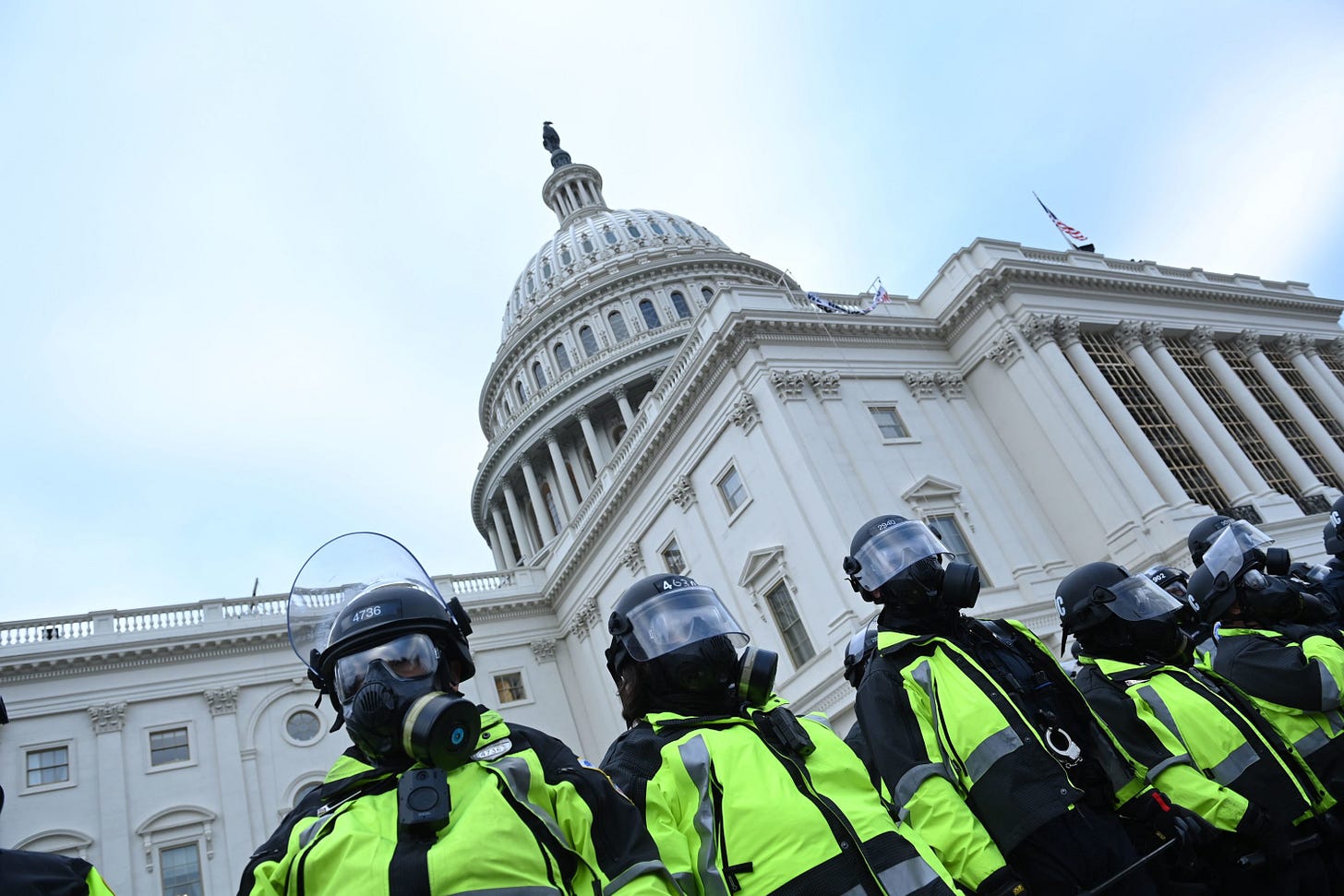More Transparency for the Capitol Police
The anniversary of the Jan. 6 insurrection is a reminder that they need less secrecy and more accountability.

More than a year ago, even before the deeply troubling events of January 6, 2021, Congress asked the United States Capitol Police to create a process through which the public can request USCP records. The agency was encouraged to “develop a policy and procedure for the sharing of information that follows the spirit of the Freedom of Information Act.” Despite Congress’s urging, though, USCP has made no outward signs of progress toward that goal.
As we approach the one-year anniversary of the Trump insurrection, with a Senate Rules Committee hearing scheduled in Congress on January 5 that will feature the Capitol Police chief and events in the House on January 6 to mark that disastrous day for our democracy, it is time for Congress to hold the Capitol Police accountable for its failure to make itself accountable to Congress.
We all watched the Capitol Police rank and file fight valiantly against the insurrectionists. But as a series of congressional hearings and partially released inspector general reports have belatedly made clear, the Capitol Police have long suffered from serious leadership and organizational failings. The cascade of those failures on January 6—including actions by six officers that resulted in USCP recommending disciplinary action—highlight the need for additional transparency and accountability for the agency. Indeed, the lack of transparency is what allowed Capitol Police leadership to avoid the attention necessary to force them to undertake structural reforms and reevaluate how they approach their mission.
The USCP has a well-earned reputation for secrecy. Being wholly exempt from public records laws is not the norm, even for law enforcement agencies. In fact, most other law enforcement agencies, including the Federal Bureau of Investigation, regularly process public records requests. This transparency helps to ensure that law enforcement agencies are serving the public good and not abusing their authority. Public records requests have a rich history of revealing wastes of taxpayer dollars, agency ineffectiveness, and even agency actions that circumvent or outright violate the law.
Because we have not seen the USCP make any visible progress toward drafting public records regulations, my colleagues and I at Demand Progress Education Fund have released model public records regulations for the agency. If implemented, these regulations would create a FOIA-like process for the Capitol Police.
Our model regulations are based largely on the public records regulations that apply to the Government Accountability Office and the Library of Congress. They are both legislative branch agencies, like the Capitol Police, and although they are not subject to FOIA, they have regulations that largely follow FOIA’s spirit and process. Indeed, the federal FOIA Advisory Committee recently recommended Congress put in place a public records process for all legislative branch support agencies. Our model regulations mirror those existing GAO and LOC provisions, with slight revisions for clarity and best practices. Crucially, they would ensure that important USCP documents are made public by default.
We hope the Capitol Police will finally act to create accountability mechanisms; our model regulations will provide a standard against which we can judge the adequacy of their actions. USCP is a half-billion dollar agency tasked with one of the most important jobs in the country: protecting our Congress. While establishing a public records process is far from the final word in reforming the agency, it will be an important tool making it possible to understand whether the Capitol Police have begun to implement essential reforms. It’s time for the agency to have some accountability to the public.

